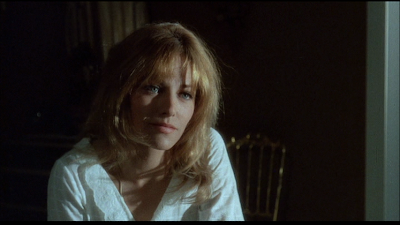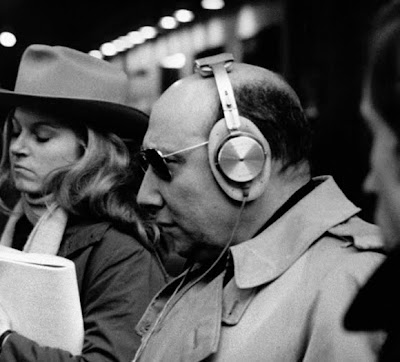
Le Samourai
A film by Jean-Pierre Melville
Country:France
Year:1967
French with English subtitles
Runtime : 105 min
9th May 2010 ; 5.45 pm
Perks Mini Theatre ,
Perks School, Off Trichy Road.
http://konangalfilmsociety.blogspot.com/

An empty room. No, not empty. In the shadows we can barely see a man on the bed. He lights a cigarette, and smoke coils up toward a wisp of light from the window. After a time the man gets up, fully dressed, and moves to a hat stand near the door. He puts on his fedora, adjusting the brim with delicate precision, and goes out into the street.

Like a painter or a musician, a filmmaker can suggest complete mastery with just a few strokes. Jean-Pierre Melville involves us in the spell of ``Le Samourai'' (1967) before a word is spoken. He does it with light: a cold light, like dawn on an ugly day. And color: grays and blues. And actions that speak in place of words.

The man, named Jef Costello, is played by Alain Delon, the tough pretty boy of French movies. He was 32 when this movie was made, an actor so improbably handsome that his best strategy for dealing with his looks was to use a poker face. He seems utterly unaware here of his appearance; at times he seems to be playing himself in a dream. A ``beautiful destructive angel of the dark street,'' film critic David Thomson called him.

Costello is a killer for hire. The movie follows him with meticulous attention to detail while he establishes an alibi, kills a nightclub owner, survives a police lineup, is betrayed by those who hired him, and becomes the subject of a police manhunt that involves a cat-and-mouse chase through the Paris Metro. All the while he barely betrays an emotion.

Two women help supply his alibis. A woman named Jane loves him, we guess, although she has a rich lover and Jef knows it. (She is played by Nathalie Delon, his real-life wife.) The other woman, a black musician named Valerie (Caty Rosier) who plays the piano in the nightclub, lies at the lineup and says she has never seen him. But she knows she has. Is she lying to help him? The film is masterful in its control of acting and visual style.

One of the pleasures of ``Le Samourai'' is to realize how complicated the plot has grown, in its flat, deadpan way. With little dialogue and spare scenes of pure action (most of it unsensational), the movie devises a situation in which Jef is being sought all over Paris by both the police and the underworld, while he simultaneously puts his own plan into effect, and deals with both women.

The movie teaches us how action is the enemy of suspense--how action releases tension, instead of building it. Better to wait for a whole movie for something to happen (assuming we really care whether it happens) than to sit through a film where things we don't care about are happening constantly. Melville uses character, not action, to build suspense.
Le Samourai is a supreme example of Melville’s ‘baroque minimalism’ – a style that is at once understated and self-conscious, pared down and emphatic, distanced and affecting. Le Samourai moves in the rarefied, mythical space of film noir, yet we are in the streets, nightclub and underground of 1967 Paris.


Jean-Pierre Melville
Poet of the underworld
Film-maker Jean-Pierre Melville's life
was a running battle with critics and fans alike.
But the 'garlic gangster' won in the end.
Born in Paris, France, Melville, who was an Alsatian Jew, served in World War II and fought in Operation Dragoon. When he returned from the war he applied for a license to become an assistant director, but was refused. Without this support, he decided to direct his films by his own means.
In 1963 he was a member of the jury at the 13th Berlin International Film Festival.
He became an independent film-maker, owning his own studios, and became well known for his tragic, minimalist film noirs, such as Le Samouraï (1967) and Le Cercle rouge (1969), starring major, charismatic actors like Alain Delon (probably the definitive 'Melvillian' actor), Jean-Paul Belmondo and Lino Ventura. His directorial style was influenced by American cinema and fetishized accessories like weapons, clothes and especially hats.
His independence and his 'reporting' style of film-making (he was one of the first French directors to use real locations regularly) were a major influence on the French New Wave film movement, and he appears as a minor character in Jean-Luc Godard's seminal New Wave film Breathless. When Godard was having difficultly editing Breathless, it was Melville that suggested that he just cut directly to the best parts of a shot. Thus, the films famous and innovative use of jump cuts were made.
In 1973, Jean-Pierre Melville died. In a career spanning 25 years, the director had made just 13 full length films, but many of these are regarded as genuine triumphs of French cinema.

No comments:
Post a Comment